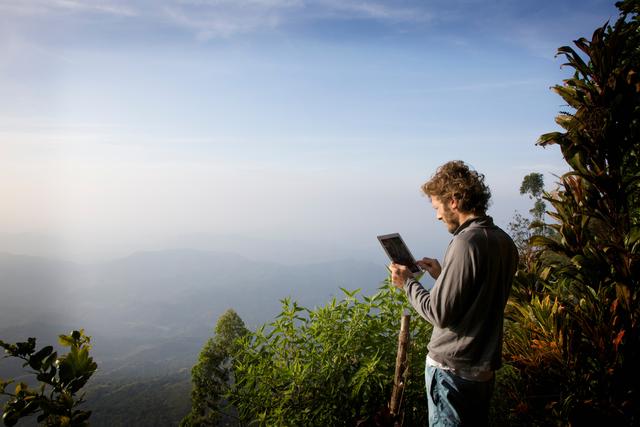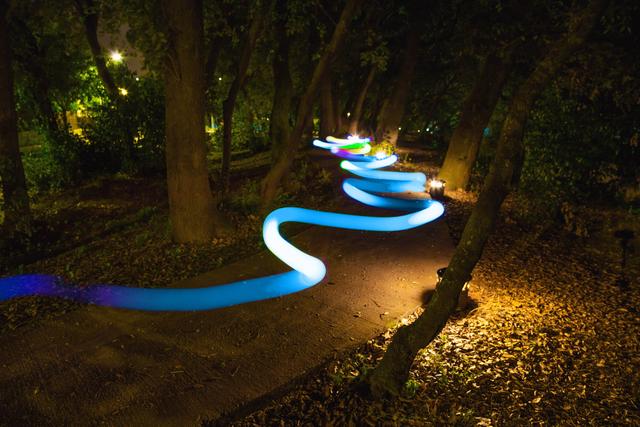According to the World Resources Institute, every year more than 100 billion tonnes of resources enter the economy and only 7% of them are recycled or it gets a second life again, figure down from 9.1% in 2018. An unsustainable situation given that the extraction of natural resources is the cause of 90% of the loss of biodiversity and water stress on our planet.
According to the Global E-Waste Monitor 2024, more than 82 billion kg of e-waste is expected to be generated by 2030, we need to change the way we do things, and the circular economy is the answer, as it allows us to grow using fewer resources and avoid the indirect carbon emissions associated with the manufacture of new equipment. At Telefónica, we are increasingly circular in our processes, with our suppliers and customers.
Zero Waste 2030
We promote the circular economy in our network transformation by prioritising the reuse of electronic equipment and, where this is not possible, extracting value from materials through recycling.
In this way we reduce the consumption of new resources and the generation of waste. For this reason, we have set ourselves the goal of becoming a Zero Waste company by 2030, reusing and recycling 100% of our waste. In 2024, the company reused and recycled 95%.

Circular Economy Plan
These are our actions to move towards a Zero Waste company:
90%
Refurbished routers and decoders
500K
Reused mobile devices
>300K
Reused network equipment
100%
Recycled waste
Thanks to reuse and recycling, some resources such as gold, copper or aluminium can be used in a new product
In 2024, we reused more than 5 million units of equipment from operations, offices and customers, 10% more than the previous year. In this way, we save resources and reduce CO2 emissions associated with the manufacture of new products.
In terms of network equipment, we reused more than 530,000 items, 70% more than in 2023, thanks to initiatives such as the MAIA Marketplace.
We also achieved our goal of reusing 90% of refurbished customer home equipment, more than 4 million routers and decoders.
Thus, we reuse 69% of the total electronic equipment collected and recycle the remaining 30%.
GSMA sectoral commitments
We subscribe the following GSMA circular economy sectoral commitments:
100%
Network equipment reused and recycled by 2025
20%
Mobile devices collected by 2030
100%
Mobile devices reused and recycled by 2030
Network equipment: we are committed to reuse and recycle 100% of our equipment by 2025. By 2024 we came closer, reaching 99%.
Mobile devices: Regarding the commitment to increase take-back by 20% until 2030, in 2024 we have collected 90 tonnes of mobile devices, which represents 11% of the total equipment distributed.
Broadly considered, 100% of these collected devices are reused or recycled.
Circular digital initiatives
Telefónica promotes the circular economy in its processes and with its electronic equipment through the following initiatives:
VICKY & APOLLO FOR THE REUSE OF ROUTERS
Blockchain and Big Data for the reuse of routers and decoders.
MARA
Omni-channel model with E2E approach to mobile phone reuse.
MAIA
Platform for the reuse of network equipment.
GRETEL
Waste management and recycling platform.
Suppliers as partners
We integrate the philosophy of the circular economy into our relationship with suppliers, who are essential allies in this transition. Therefore, within the framework of our global policy of sustainability in the supply chain, we introduce a series of requirements for them to develop their activity taking maximum care of the environment.

Although Telefónica does not have production processes, we cooperate with our suppliers to integrate environmental criteria into the home connectivity equipment designed by Telefónica and bearing the image of one of the Company’s brands (Movistar, O2 or Vivo). Additionally, we work together to incorporate circular criteria into the acquisition of electronic equipment.
We drive circularity for our customers
We offer our customers repair services and options to buy back and refurbish mobile phones to extend their lifespan and give them a second use. In this way, we reduce resource and energy consumption by avoiding the manufacture of new devices.
In addition, we inform and raise awareness among our customers about the environmental impact of the mobile phones we sell through the Eco Rating label, which encourages innovation from the design stage and the reduction of the environmental impacts of the devices throughout their lifecycle. With this initiative, we enable our customers to incorporate environmentally sustainability and circular economy criteria into their purchasing decisions.
Furthermore, with our Eco Smart digital solutionsfor businesses, we highlight the potential of digitalization to decarbonize other sectors of the economy, as well as to foster the circular economy. As an example, IoT solutions applied to Industry 4.0 could optimize resource consumption and facilitate circular strategies for our business customers.
“Digital technologies are driving a profound transformation of our economy”
Global Environmental and Energy Policy
This Policy includes measures that promote circularity, such as encouraging the reuse and recycling of equipment and/or reduce the waste generation.